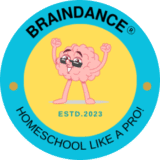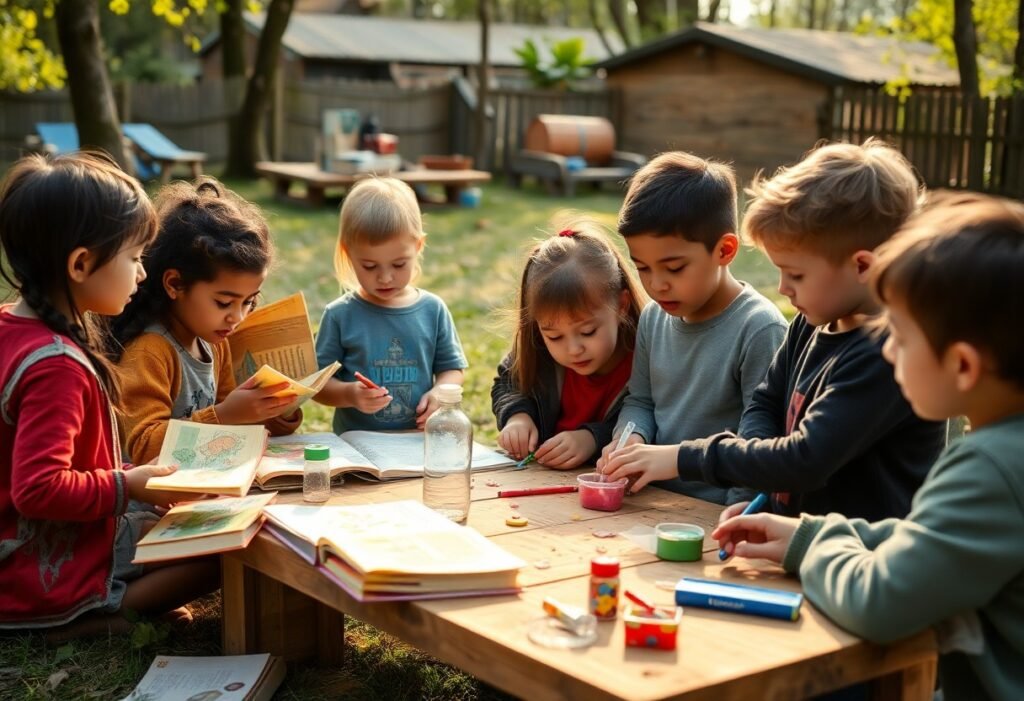Child-led learning empowers you to embrace an educational journey where your child takes the lead in their own learning process. This approach not only fosters a love for discovery but also nurtures independence and critical thinking skills. In an unschooling environment, it’s necessary to create the right atmosphere to support your child’s natural curiosity. In this post, we’ll explore five effective steps that will help you thrive alongside your child as they explore the world on their own terms.
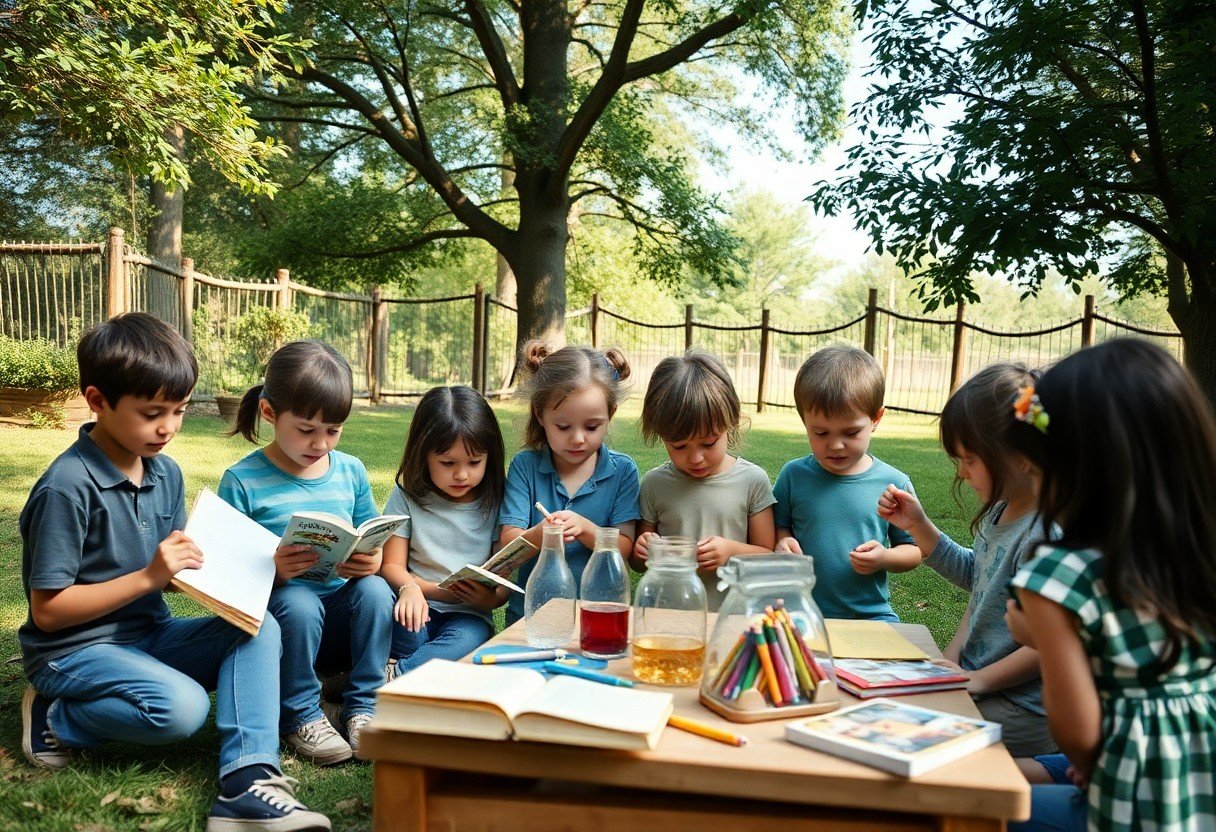
Key Takeaways:
- Foster a child-centric approach by allowing learners to explore their interests freely, promoting natural curiosity and engagement in their education.
- Create a supportive learning environment that encourages risk-taking and experimentation, enabling children to learn through trial and error.
- Facilitate open communication and collaborative projects, empowering children to take ownership of their learning journey and develop critical thinking skills.
Embracing the Child’s Curiosity: The Foundation of Unschooling
Unschooling thrives on the idea that your child’s natural curiosity is a powerful driving force for learning. By creating an environment that encourages exploration and inquiry, you lay the groundwork for meaningful experiences that will help them grow intellectually and personally. This approach shifts the focus from structured lessons to embracing spontaneous learning opportunities that can arise in everyday life, making education a more organic and enjoyable process.
Recognizing Natural Interests
Tuning into your child’s passions allows you to foster a sense of autonomy in their learning journey. Observe what excites them, whether it’s animals, art, or technology. Engaging in conversations about their interests will not only deepen your connection but also help you provide resources and activities that cater to their unique curiosities.
Cultivating an Exploratory Mindset
Encouraging an exploratory mindset transforms everyday moments into rich learning experiences. Instead of adhering to a rigid curriculum, invite your child to ask questions, seek answers, and experiment with different ideas. For instance, if your child is intrigued by nature, consider taking them on nature walks to collect specimens, diary their observations, or even conduct simple science experiments at home. This type of open-ended learning fosters creativity and resilience, making all the difference in their educational journey.
This exploratory mindset not only develops critical thinking skills but also nurtures a love for learning that lasts a lifetime. By facilitating opportunities for hands-on experiences, such as visiting museums, workshops, or community events, you enable your child to engage with their interests deeply. Use every outing as a chance to ignite their inquisitiveness—let them lead the discussion on their findings and showcase their knowledge to others. Your involvement reinforces their confidence and motivates them to explore further, making every learning experience richer and more fulfilling.
Creating a Stimulating Learning Environment: More Than Just Resources
Your child’s learning environment extends beyond books and materials; it’s about creating a space that inspires curiosity and engagement. Offering a balance of structured and free play areas encourages exploration and creativity. Incorporating cozy reading nooks or interactive project corners allows your child to experiment and discover at their own pace. Ensuring that the environment is inviting and flexible fosters a sense of ownership, making your child feel more invested in their learning journey.
Designing Spaces for Inquiry
Dedicated inquiry zones filled with manipulatives, art supplies, and science kits provoke thought and enable your child to dive deeply into topics of interest. By placing these resources within easy reach, you empower your child to ask questions, form hypotheses, and engage in hands-on learning, stimulating intellectual curiosity and critical thinking skills.
Integrating Technology and Nature
Combining technology with natural elements creates a unique and enriching learning experience. Hard-to-access online resources, like virtual museum tours and educational apps, can complement outdoor exploration and play, prompting kids to research their findings further. The blend of technology with the sensory experiences offered by nature cultivates a deep understanding of concepts while fostering a connection to the environment.
Finding opportunities to integrate tech and nature can be as straightforward as using a smartphone to identify plants during a nature walk or employing educational apps that promote outdoor activities. For instance, using augmented reality tools to explore ecosystems not only makes learning interactive but also enhances engagement. In this way, you enable your child to understand complex concepts through real-world applications, enriching their learning experience and encouraging them to take ownership of their education.
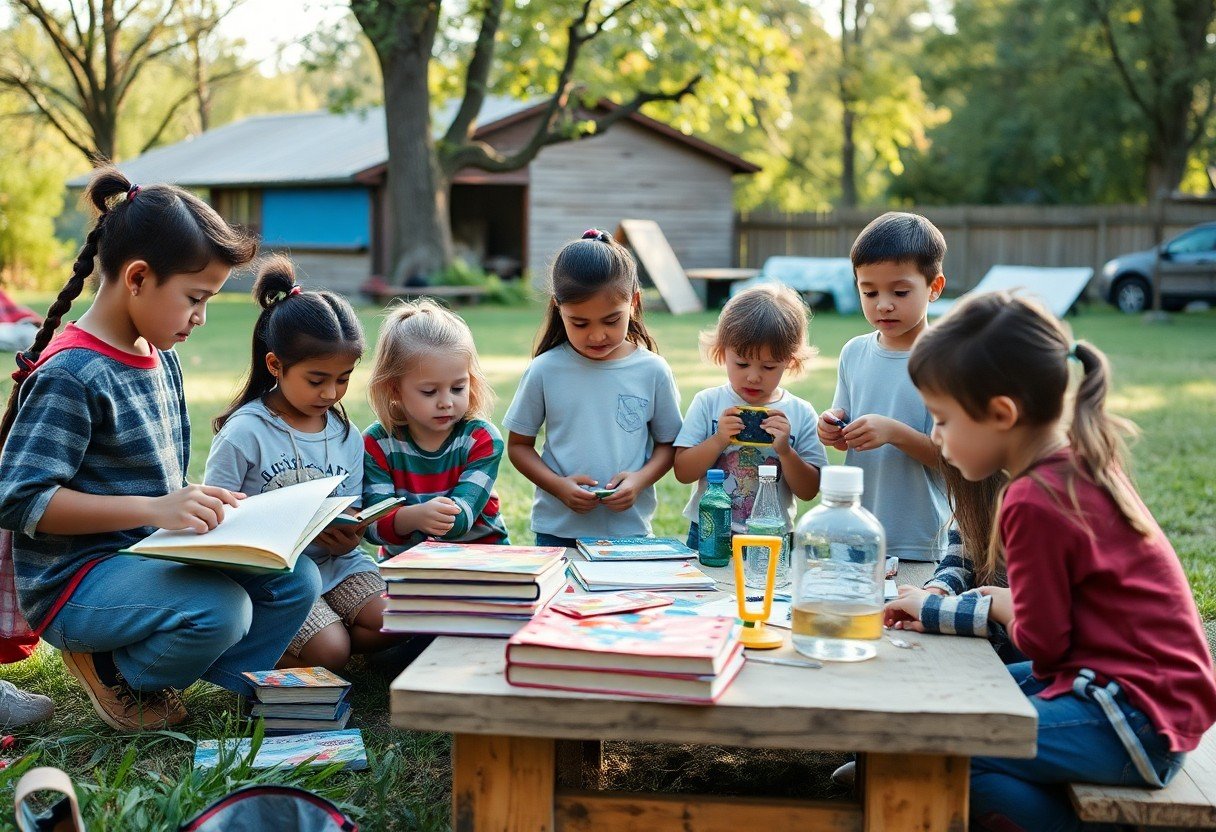
The Role of Mentorship: Guiding Without Directing
In an unschooling environment, mentorship plays a transformative role, allowing children to explore their interests while receiving support from experienced individuals. Rather than providing direct instruction, mentors facilitate learning experiences, encouraging autonomy while offering guidance. This approach fosters an enriching atmosphere that not only nurtures curiosity but also cultivates self-confidence. To better understand how effective unschooling can be, check out my FREE report: 5 Homeschooling Myths That Hold Parents Back – And How to Overcome Them.
Identifying Potential Mentors
Finding the right mentors can significantly impact your child’s unschooling journey. Look for individuals who share interests with your child or possess expertise in areas they’re passionate about. This could be a local artist, a science enthusiast, or even a family friend with specialized knowledge. Engaging with community centers, homeschooling groups, or online forums can help you discover potential mentors who are eager to support your child’s learning process.
Encouraging Collaborative Learning
Collaborative learning amplifies the benefits of mentorship, creating opportunities for children to work together on projects that inspire them. By connecting peers with shared interests, you foster an environment where they can exchange ideas, solve problems, and support each other’s growth. This interaction not only solidifies knowledge but can lead to lasting friendships and discovery of new passions.
Facilitating collaborative learning can take many forms such as group projects, team-based activities, or community events that align with your children’s interests. Start by organizing meet-ups or workshops where like-minded kids can brainstorm and share their individual insights, allowing them to contribute unique perspectives. Over time, they’ll develop necessary skills like communication, teamwork, and critical thinking that extend well beyond their immediate academic pursuits. Encouraging these interactions will keep your children motivated and deepen their learning experience, enhancing the unschooling philosophy of curiosity-led exploration.
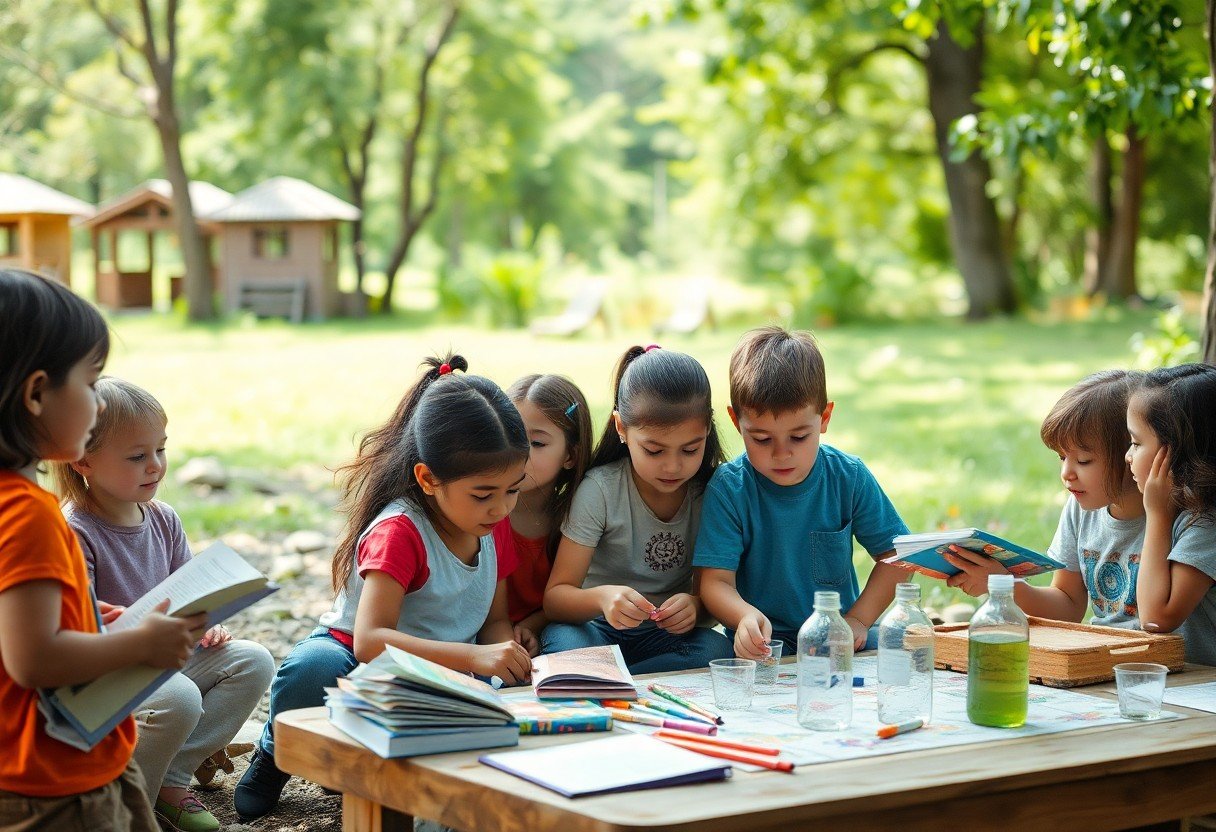
Measuring Success: Redefining Academic Achievement
In an unschooling environment, measuring success transcends traditional metrics like grades and test scores. Instead, you focus on your child’s unique journey, emphasizing their personal growth and interests. Your measurements of achievement might include creativity, critical thinking, problem-solving abilities, and emotional intelligence, showcasing a broader spectrum of accomplishments. By redefining what academic success looks like, you can nurture a lifelong love of learning tailored to your child’s passions and strengths.
Beyond Grades: Skills that Matter
Shifting your perspective from grades to the skills that truly matter fosters a deeper learning experience for your child. Skills such as effective communication, collaboration, and adaptability become more relevant than memorizing facts for exams. You’ll find that your child’s ability to think independently, pursue interests passionately, and tackle real-world problems is a more accurate reflection of their educational success.
Celebrating Progress and Milestones
Celebrating progress and milestones empowers your child by reinforcing their achievements, no matter how small. Whether it’s mastering a new skill, completing a project, or simply gaining confidence in their abilities, acknowledging these moments fuels motivation and enthusiasm for future endeavors. Recognize and document these moments with special activities, reward systems, or even family gatherings.
Imagine creating a “Progress Wall” in your home, where you post pictures, handwritten notes, or artifacts from projects and experiences your child has engaged in. This visual representation of their accomplishments serves as a constant reminder of their growth, allowing both you and your child to reflect on the journey together. You can also schedule regular family discussions to highlight their victories and set future goals, strengthening your connection and encouraging a shared celebration of learning. This supportive atmosphere not only builds your child’s confidence but reinforces the idea that every step in their educational path is worth celebrating.
Building a Community: The Importance of Social Connections
In an unschooling environment, fostering social connections is vital for your child’s growth and well-being. Building a community offers your child opportunities to share ideas, engage in collaborative projects, and develop strong relationships with peers who share similar interests. This network creates a foundation for emotional support, learning experiences, and even friendships that can last a lifetime. As a parent, actively participating in community affairs can enrich your child’s educational journey, making it both enjoyable and impactful.
Finding Supportive Networks
Identifying supportive networks is vital for navigating an unschooling path. Local homeschool groups, online forums, or co-ops can provide invaluable resources, connecting you with like-minded families who understand your educational style. These communities often share information about meetups, workshops, and social events, allowing your child to interact with others while exploring their passions. The relationships you cultivate here can bolster both you and your child’s confidence as you commence on this unique learning journey.
Engaging in Cooperative Learning Experiences
Engaging in cooperative learning experiences allows your child to learn alongside peers in dynamic ways. These interactions can include group projects, workshops, or simply playdates focused on shared interests. Facilitating such opportunities fosters teamwork, creativity, and critical thinking, as children learn to communicate and collaborate effectively. Whether it’s forming a small group to work on a science experiment or organizing a literature club, these experiences not only enhance your child’s knowledge but also reinforce social skills vital for lifelong learning.
For example, you might consider arranging a weekly art session where your child and their friends experiment with different mediums, guided by a local artist. Here, cooperation takes center stage as kids bounce ideas off one another, share supplies, and critique each other’s work in a constructive manner. Such hands-on experiences deepen their understanding of various techniques while naturally building friendships. Engaging in cooperative learning doesn’t just enrich your child’s education; it cultivates a sense of belonging and encourages a love of learning in a community setting.
To wrap up
Presently, you have the tools to cultivate a fulfilling child-led learning experience in your unschooling journey. By following the five steps outlined, you can empower your child to explore their passions, develop critical thinking skills, and embrace lifelong learning with excitement. Trust your instincts, support their interests, and enjoy the adventure alongside them. Each step you take will help create a rich environment where curiosity thrives and education becomes a natural part of everyday life.
